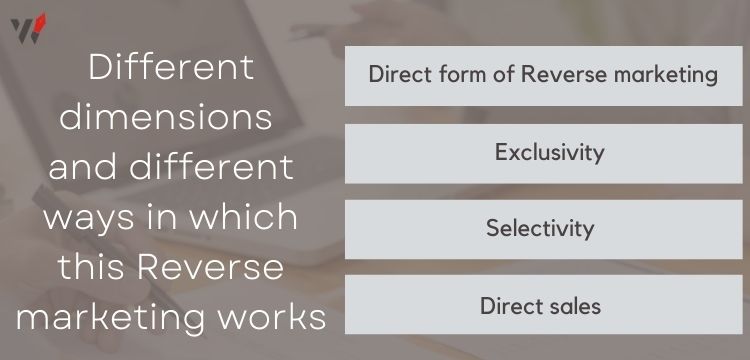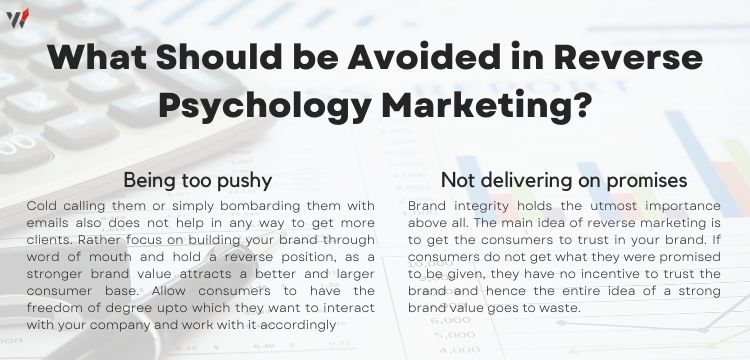Marketing as a trade is essentially the understanding and influencing human temperament to help sell your products and services to a set of an audience. With the passage of time, people have been using different strategies to influence the customer opinion in order to boost product sales and services.
Different marketing strategists or marketing agency over the years have used different psychological theories to polish and fine tune their marketing campaigns. It is important to understand that usually as a marketing strategist you would want to show your consumers that your product is supreme and the best to exist in the market.
Read our blog about Importance of Digital Marketing in Online Casino: Importance of Digital Marketing in Online Casino Industry and Online Gambling
Table of Contents
How is Psychology Used In Marketing?
Marketing psychology essentially works to understand consumer thinking, feelings and reasons behind the decisions they take.
Irrespective of what a brand has to offer, a market is always overcrowded with competitors involved in similar services and products. The purpose of using psychology in marketing, quite simply is to help brands gain edge over their competitors by influencing their consumers into engaging with their products and services.
The best of the marketing opportunities are always found when institutional objectives and human psychology meet. Once when companies are able to tap into the human brain and create positive potentially emotional responses it can be used to influence consumers to become potential customers and boost brand sales.
Also Read about Consumer VS Customer VS Buyer: What is Consumer VS Customer VS Buyer? Learn 3 easy differences
What is Reverse Psychology in Marketing?
When someone tells you to do something more often than not you often end up doing the opposite; let us suppose if there was your favorite sweet on the counter top in the kitchen but your mother forbade you from eating them there might have been an instance where it made you want to eat the sweet even more. This is the basic premise of reverse psychology. Now imagine if you replaced the “mother” with a business trying to sell its product and the “sweet” with their product in this situation, that is what Reverse Psychology in marketing is all about.
What is Reverse Marketing?
A concept of marketing in which the customer seeks the firm or the product rather than the company seeking the firm. It is similar to reverse psychology where you make a person want something instead of proving to them why they should have the thing.
The usual marketing agencies usually coax the customer to seek their product or service and take the product to them. On the other hand reverse marketing involves more often the idea of making consumers look for the services on their own.
There are obviously different dimensions and different ways in which this reverse marketing works. Let us explore a few of them;

Direct form of Reverse marketing
In 2011, Patagonia took out a huge ad in the New York Times at the start of the Black Friday week asking consumers to “not buy” its jackets. Later on a blog was published on the company website to explain how the entire ad campaign was created to promote its “Common Threads Initiative”. The company explained in their blog how they were calling for sustainable fashion by calling out the wasteful buying practices that customers followed and tried to bring awareness to the same.
The company reasoned that if they bought from high quality brands (like Patagonia) they would have to buy less number of times and hence a more ecologically-sound path.
Although a complex message the advertisement did boost the popularity of the company and help the company gain sales with minimal resources.
This case can be seen as a clear example of Direct form of Reverse Marketing, where the client is clearly denied from doing something,and yet they do it for the simple funs of it.
Exclusivity
Certain companies do not go to their companies for business, rather they treat their product with such high standards giving them an air of “exclusivity”. Take the case of Ferrari or Rolex for that matter, these companies do not run any promotional campaigns or advertising campaigns to highlight why they are the best. They have already established themselves as a brand on the basis of the exclusivity and the sophistication of their brand which makes the consumers want their products even more. The exclusivity attracts customers who want to experience a unique and special experience that they have usually been alien to.
Selectivity
If you might have noticed, certain brands often send out millions of emails asking clients to unsubscribe to their newsletters if they want, most of them do unsubscribe since they are not interested in the company or product in any way. On the other hand those who subscribe become the people the company wants to work with and maintain their interest by keeping them engaged in their newsletters, which would involve simple strategies such as the lack of engagement could simply lead to their termination from the newsletter mailing list thus incentivising them to engage more and more likely to purchase products.
Direct sales
As you go to a car dealership the car dealer goes about showing you a bigger and more flamboyant car with extra features that you particularly might not have been interested in. Upon your rejection of that particular car, the salesman then shows you a second car with lesser of those flamboyant features because you don’t need them anyway and this car actually fits your budget and you agree to buy the second car.
In this entire scenario, the salesman’s objective was never to sell you the first car in the first place. His objective had always been to sell you the second car which he did. This method generated a sense of trust between you and the salesman who adjusted and showed you the best car in your budget, which moreover drove your idea of purchasing the car suggested by him.
Read our blog about Digital Marketing and Metaverse: Digital Marketing and Metaverse : Astonishing Step in Digital Marketing 101
Is Reverse Psychology Marketing Effective?
Reverse psychology marketing is a very interesting strategy of marketing where you essentially ask someone to behave in a way opposite to what they would expect. As a result, upon enough curiosity being driven, the customer will behave in the exact same way you wanted them to.
But is this method of marketing effective enough from a marketing agency’s point of view?
Technically speaking as seen in the case of Patagonia jackets, reverse marketing can make you memorable. Most companies are expected to follow the same line of “proving to be the best” script in a conventional market. However , doing something out of the ordinary which might catch the customers off their feet will make you popular, probably extending your image as a unique brand in the market.
As seen in the salesman scenario discussed above, the methodology does build up a long standing sense of trust and security between the customers and the company. Most companies are rather short sighted with the want for direct sales and are often distrusted by most consumers. However the reverse marketing scenario helps build better trust and long standing consumer relationships which generate more repeat customers in the long run.
How Does Reverse Psychology Marketing Work?
Reverse Marketing all works on the simple principle of trust building and carving out a market niche by building a loyal support base and engaging in consumer relations. Giving out proper valuable content for free for your target audience which will help them in times when needed is an essential way to gain a loyal customer following.
When the consumer knows you as the only source for trustable content or product that helps people solve their problems – it is a great strategy to get the conversation started between the consumer and the company. Once potential consumers start seeing your brand as a trusted product source they will start being loyal towards your brand. However it is important to also note the fact that you cannot come off as too pushy or pretentious to your consumers, else you might simply scare away your customers.
It is important to know your target audience. It will be difficult to curate your product and adjust them if you do not know about your target audience. Audiences of different age brackets will react to the product differently so you have to make sure your product or service has to be more optimized for the age bracket your target audience belongs to and take positive steps to involve them in product feedback.
Keep building relations with your consumers. As you go through iterations of a product, customer feedback is of utmost importance. Collect important feedback via surveys and various other channels. Take consumer feedback into product sales and occasionally involve customers in the internal workings of the company to let them know about the newer product lines that the company might be working on to help generate market interest.
How Does Reverse Psychology Marketing Benefit a Company?

Stronger brand value
The Reverse marketing model essentially works on the idea of bringing the customer to the product rather than the other way around. Once you have generated enough curiosity in your product, the brand value strengthens due to the multiple testimonials that travel through word of mouth, which is still the best form of marketing. Reverse marketing helps people relate more to the brand value rather than just associate it with the product they are buying.
Boost customer relations
Boosting customer relations and the strengthening of brand values are quite interrelated, where both happen in tandem with each other. Since reverse marketing essentially advertises your value in the market instead of your product, it becomes easier for consumers to relate with your brand image and ultimately associate with it through purchasing the product your brand offers. Reverse marketing strategies essentially boost your relationship with your clients and hence customer relations increase.
Freedom to engage with the brand
Reverse Marketing gives the customers more freedom in what way they want to interact with the brand and upto what extent. Let us take a situation where you crave ice-cream. You would essentially go to an ice-cream shop and ask for whatever flavor you’d like. This is a classic case of reverse marketing where the consumer goes to the service and decides the extent upto which he wants to interact with the service. The opposite scenario would have been the ice cream shop, realizing it had not made enough sales, would call the customer and try to sell them their ice cream without considering the customer’s preference or whether they wanted them in the first place.
Push up sales and productivity
With more recurring customers due to an increasingly loyal customer base established through reverse marketing, the recurring sales help drive sales and as a result increases overall productivity of the company as a whole. The profit you receive from this initial boost should be ideally used to incorporate tweaks as per the feedback that have been received from customer surveys.
What Should be Avoided in Reverse Psychology Marketing?

Being too pushy
Let’s face it, no one likes too much of a pushy or uninterested company. While the former might simply scare away customers, the latter might simply not attract enough attention towards the product. Under Reverse Marketing you are expected to connect with the consumer over the brand value, upon establishment of which the consumer will naturally walk towards the company for purchasing the product.
Cold calling them or simply bombarding them with emails also does not help in any way to get more clients. Rather focus on building your brand through word of mouth and hold a reverse position, as a stronger brand value attracts a better and larger consumer base. Allow consumers to have the freedom of degree upto which they want to interact with your company and work with it accordingly. Let your consumers be informed and help them make informed choices which will ultimately help you create better relationships.
Not delivering on promises
Brand integrity holds the utmost importance above all. The main idea of reverse marketing is to get the consumers to trust in your brand. If consumers do not get what they were promised to be given, they have no incentive to trust the brand and hence the entire idea of a strong brand value goes to waste. In case there are chances where there are genuine reasons as to why customer commitments were not upheld the consumers must be informed about the reasons for the same and hence transparency should be established through and proper redressal measures should be in place. At the end of the day, the customer is king.
Read about Latest Digital Marketing Trends: Latest Digital Marketing Trends
Conclusion
Reverse marketing strategy is a great way to build and strengthen brand value, establish good consumer relations and a healthy consumer base. In order to achieve proper success in Reverse marketing a company must always ask what they can offer in value, whether people would like to obtain those services or products for testing and how can those products be further and continuously improved. Once these questions have been answered, the company will be easily successful in employing Reverse marketing strategies.
FAQs
- How is reverse psychology used in marketing?
Reverse psychology is essentially the method which involves making the consumer sought after the brand services instead of it happening other way round.
- How is psychology used in marketing?
Marketing psychology essentially works to understand consumer thinking, feelings and reasons behind the decisions they take. The purpose of using psychology in marketing, quite simply is to help brands gain edge over their competitors by influencing their consumers into engaging with their products and services.
- What is a reverse psychology example?
When someone tells you to do something more often than not you often end up doing the opposite; let us suppose if there was your favorite sweet on the counter top in the kitchen but your mother forbade you from eating them there might have been an instance where it made you want to eat the sweet even more. This is the basic premise of reverse psychology.
- Why is reverse marketing important?
Reverse marketing lays a greater emphasis to your brand compared to your product. If at a point you are looking to grow your brand more and attract more recurring customer sales, Reverse marketing is highly beneficial.
- How do you do reverse marketing?
There are three main steps to a successful Reverse marketing campaign;
- Knowing what your customers want
- Giving customers a reason to associate with your brand
- Enhancing customer relations through proper feedback incorporation.





 WhatsApp
WhatsApp